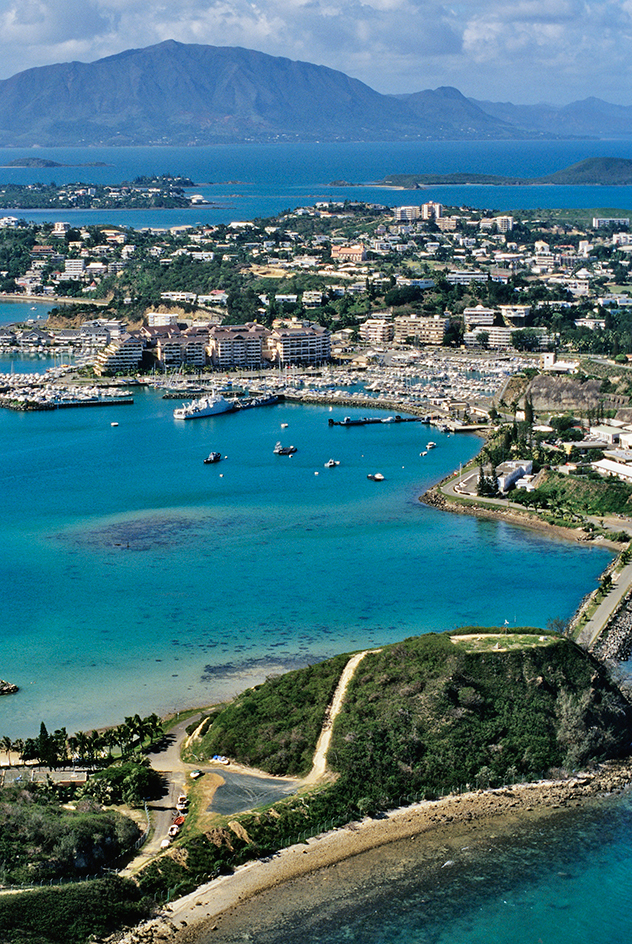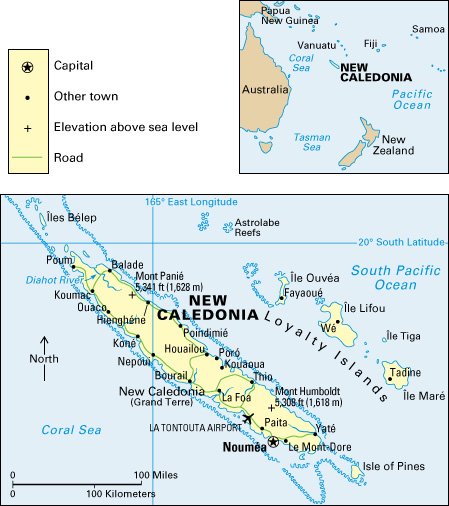New Caledonia is an overseas possession of France. It lies in the South Pacific Ocean, about 1,200 miles (1,930 kilometers) northeast of Sydney, Australia. New Caledonia consists of one main island, also called New Caledonia, or Grand Terre; the Loyalty Islands; the Belep Islands; the Isle of Pines; and a few uninhabited islands. The mountainous main island covers 6,321 square miles (16,372 square kilometers). The rest of the islands have a total area of only 851 square miles (2,203 square kilometers).

New Caledonia has a population of about 291,000. Noumea, on the main island, is the capital and only city. Melanesians, also called Kanaks, are the largest group of people and make up about two-fifths of the population. Europeans are the second largest group. Others include Indonesians, Polynesians, and Vietnamese.
New Caledonia is one of the world’s leading producers of nickel. Nickel mining and smelting are the leading industries. Other minerals produced in New Caledonia include chromite and cobalt. Important agricultural products include beef cattle, chickens, hogs, vegetables, and yams. Tourism is another important industry.
New Caledonia’s governmental responsibilities are shared by a locally elected congress and a French official appointed by the French government. The congress appoints a president and up to 10 other officials to carry out executive functions.

Melanesians, probably from New Guinea, reached New Caledonia at least 4,000 years ago. In 1774, James Cook, a British navigator, became the first European to land on the main island. He called it New Caledonia because it resembled Scotland (Caledonia in Latin). France took possession of New Caledonia in 1853. The United States had a large military base on the main island from 1942 to 1945. In the 1980’s, many Kanaks demanded independence for New Caledonia. In a referendum held in 1987, New Caledonians voted to continue French control. But the Melanesians continued to demand independence. In 1988, violence erupted between some Kanaks and French officials. Later that year, voters approved a peace agreement. In a referendum held in 1998, New Caledonians voted in favor of greater self-government for the territory. In referendums held in 2018, 2020, and 2021, they again voted to remain under French control.
